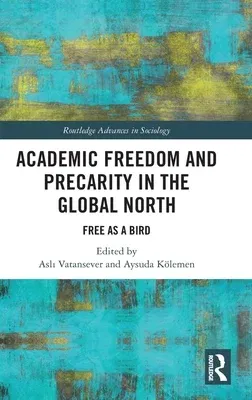Academic Freedom and Precarity in the Global North: Free as a BirdHardcover, 21 October 2022

Qty
1
Turbo
Ships in 2 - 3 days
Only 2 left
Free Delivery
Cash on Delivery
15 Days
Free Returns
Secure Checkout

Part of Series
Routledge Advances in Sociology
Print Length
170 pages
Language
English
Publisher
Routledge
Date Published
21 Oct 2022
ISBN-10
1032189193
ISBN-13
9781032189192
Description
Product Details
Book Format:
Hardcover
Country of Origin:
US
Date Published:
21 October 2022
Dimensions:
23.39 x
15.6 x
1.27 cm
ISBN-10:
1032189193
ISBN-13:
9781032189192
Language:
English
Location:
Oxford
Pages:
170
Publisher:
Weight:
439.98 gm